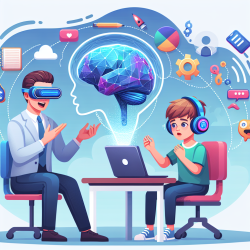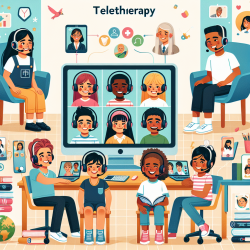In the dynamic field of language education, particularly in special education settings, practitioners are constantly seeking innovative methods to enhance learning outcomes. Recent research titled "Distinct Effects of Memory Retrieval and Articulatory Preparation when Learning and Accessing New Word Forms" provides valuable insights that can significantly impact how educators approach language learning.
The Role of Memory Retrieval and Articulatory Preparation
The study highlights the distinct roles that memory retrieval and articulatory preparation play in the acquisition of new word forms. Memory retrieval is crucial for accessing newly learned information, while articulatory preparation involves planning the physical production of speech. Understanding these processes can help educators tailor their teaching strategies to support both aspects of language learning.
Memory Retrieval: Strengthening Neural Connections
Memory retrieval is a powerful tool for reinforcing neural pathways associated with new word forms. By repeatedly accessing this information, students can strengthen their ability to recall and use new vocabulary effectively. Educators can implement activities that encourage frequent recall, such as interactive quizzes or spaced repetition exercises, to bolster this aspect of learning.
Articulatory Preparation: Enhancing Speech Production
Articulatory preparation focuses on the physical aspect of speech production. The study found that increased frontal premotor activation occurs when learners prepare to articulate new word forms. This suggests that engaging students in activities that require verbal repetition can enhance their ability to produce speech accurately. Practitioners might consider incorporating more speaking exercises into their curriculum to facilitate this process.
Practical Applications for Educators
- Interactive Learning: Utilize technology to create interactive platforms where students can practice both recalling and articulating new words.
- Repetition with Variation: Design exercises that involve repeating words in different contexts or sentences to reinforce memory retrieval and articulation.
- Sensory Integration: Incorporate multisensory approaches that combine auditory, visual, and kinesthetic elements to support diverse learning styles.
- Feedback Mechanisms: Provide immediate feedback during speaking exercises to help students adjust their articulatory efforts effectively.
The Impact on Special Education
For students with special needs, understanding the interplay between memory retrieval and articulatory preparation is particularly beneficial. Tailored interventions that focus on these areas can lead to significant improvements in language acquisition and overall communication skills. By leveraging these insights, educators can create more inclusive and effective learning environments.
Encouraging Further Research
This study opens up numerous avenues for further research. Educators are encouraged to explore how these findings can be integrated into various educational contexts and with different student populations. Collaborative efforts between researchers and practitioners will continue to refine our understanding of language learning processes.
To read the original research paper, please follow this link: Distinct Effects of Memory Retrieval and Articulatory Preparation when Learning and Accessing New Word Forms.










